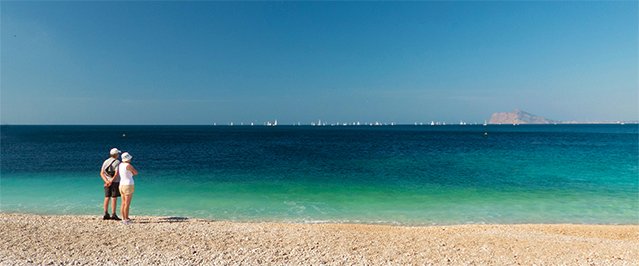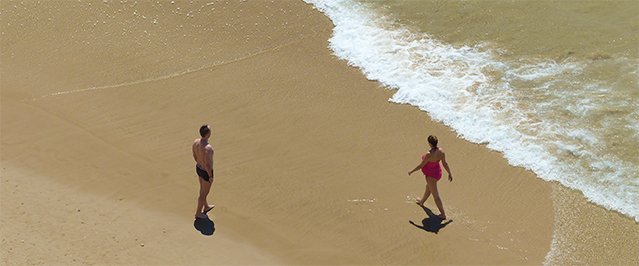Winter rental
A long, hot summer… all year round

Abahana Villas - Events every month of the year.

Abahana Villas - Enjoying the good weather all year round.
At last. Your time is yours and yours alone. Now you can look forward to a well-deserved holiday; weeks of relaxation in which to fully dedicate yourself to your family and your hobbies. Going for a stroll, diving, visiting cultural attractions or just enjoying what the Italians call "il dolce far niente". It's up to you.
Valencia, the city on the Turia River, is just a short distance from the Costa Blanca Norte. Well communicated by road, its entire cultural and gastronomical offer is well within your reach. Its theatres, such as the "Teatro Principal de Valencia", the "Teatre Talía" or the "Olympia", put on most of the plays and shows that première in Madrid or Barcelona at the start of the season. The "Centro Teatral Escalante" or the "Sala Russefa" open their doors to a somewhat more alternative public in search of works of a less commercial nature. The "Palau de Les Arts Reina Sofía" is home to many of the most successful musicals, and it is also the venue for numerous concerts of classical or contemporary music.
Of course, Valencia has its very own circuit of art exhibitions that you can enjoy in galleries such as "La Rambleta", the "Palacio Municipal de la Exposición", "Las Atarazanas" (a Gothic building with a portico) or the "Palacio de Congresos de Valencia". All manner of painters (Realists, Pop, Gothics, Hyper-realists…), photographers and sculptors put on regular exhibitions of their works.
"L'Oceanogràfic" deserves special mention. Considered the largest aquarium in Europe, it recreates as many as eight underwater environments: the Mediterranean, wetlands, temperate and tropical seas, the oceans, the Antarctic, the Arctic, islands and the Red Sea, not to mention its splendid dolphinarium.
The other major capital city that is just a stone's throw from the Costa Blanca Norte is Alicante, the city of light, equally well communicated by excellent roads. Monologues, shows and plays abound in this city. The "Teatro Principal"is undoubtedly the hub of the city's cultural activity: throughout the season it puts on a full programme of artistic events such as concerts, plays, lyrical performances, ballet or musicals.
The "MARQ", as Alicante's Archaeological Museum is known, has decided to exhibit its artefacts to the public in a rather different way. As opposed to the majority of more traditional museums, it takes a much more didactic approach, more interactive and engaging. Three rooms are open to the public: the field archaeology hall, the urban archaeology hall, and the underwater hall.
Throughout the entire province of Alicante there are myriad courses that you can sign up for if you would like to take advantage of your leisure time to try a new sport, art or craft. You can choose between handicrafts and painting classes in Altea, golf in Benissa, beginners' sailing classes in Calpe and courses in theatre, dance, singing or music in Benidorm,.
Then again, the area's gastronomical attractions are well worth a visit. A quite exceptional day out might take in the "Turrón" Museum in Jijona or the magnificent market gardens you will find all over the province of Alicante. Nor should you miss a visit to one of the "Horchata" producers in the towns of Alboraya or Tavernes Blanques (in Valencia). Brimming with minerals and nutrients, "Horchata" is made from "Chufa" which in English is "Tiger Nut Milk", and the Regulatory Council of "Chufa" organizes excursions to the orchards in which this age-old tuber is cultivated. Visitors can also participate in workshops that teach them how to produce "Horchata" in a traditional and ecological way, without altering either its vitamins or its flavour.
As well as visiting the region's industrial "Chufa" washing places, the kitchen gardeners' typical adobe houses known as "barracas", the "alquerías" (an old Arabic word for a farmhouse) and the hermitages that are often decorated with attractive mosaics, you can also see the original Roman network of irrigation ditches known as "acequias" which was extended by the Arabs and which channels water to and through the nearby fields.
